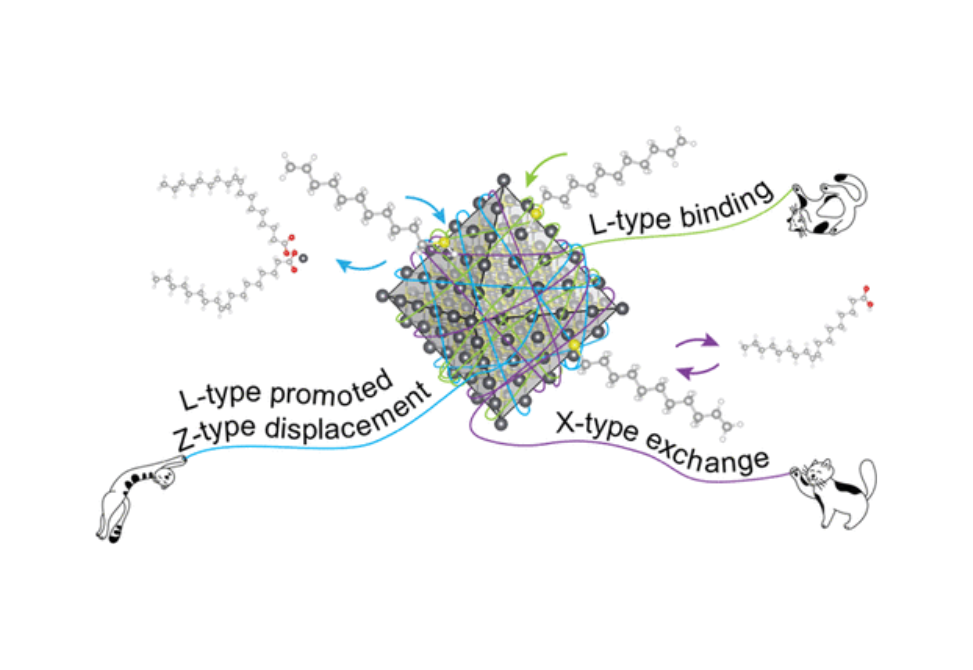Unraveling Changes to PbS Nanocrystal Surfaces Induced by Thiols
Abstract
Ligand exchange reactions are commonly employed to modify the surfaces of colloidal semiconductor nanocrystals (NCs), yet multiple reaction pathways induced by the introduction of thiols to NCs have been proposed in the literature to occur independently of each other. Here, we report three separate ligand-based reaction mechanisms between oleate-capped PbS NCs and the exchange thiol ligand, undec-10-ene-1-thiol (UDT), and unveil how these three pathways are intertwined. Experimental evidence for these mechanisms is provided by the 1H NMR spectroscopic handles of oleate- and UDT-based species as well as Pb species quantified by inductively coupled plasma mass spectrometry. We find that Z-type Pb(oleate)2 ligands are displaced at low quantities of added UDT (0–100 equiv per NC) alongside the coupled binding of L-type thiol ligands to the NC surface. With increasing amounts of added UDT (100–500 equiv), L-type binding of thiol ligands not associated with Z-type displacement is inferred from comparison of the numbers of each bound and free ligand throughout the 1H NMR spectroscopic titration. Lastly, a substantial quantity of oleic acid is liberated by the reaction of NCs with 100–500 equiv of UDT, suggesting an X-type exchange mechanism, supported by Fourier transform infrared (FTIR) spectroscopic titration. This work provides fundamental insight into changes to the NC surface upon ligand exchange with thiols and proposes site-specific reactivity for each mechanism contextualized within the prior art.
Citation
Unraveling Changes to PbS Nanocrystal Surfaces Induced by Thiols
DOI: 10.1021/acs.chemmater.1c03888


